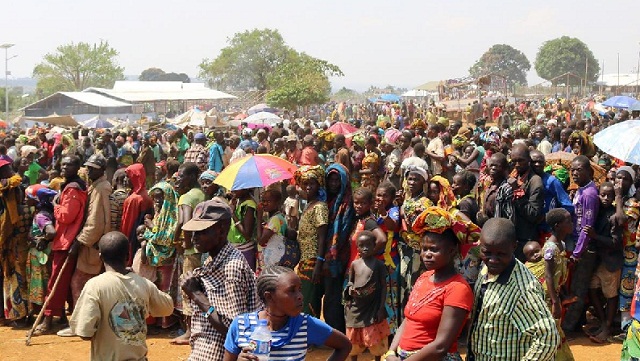
Kyangwali, Uganda | AFP | They may have fled their homes six months or as much as 20 years ago, but few of them have any faith in the upcoming elections in Democratic Republic of Congo.
Until recently, Immaculate Nyakato, 65, lived in Ituri, one of DR Congo’s eastern provinces that borders Uganda.
For a long time, she put up with the violence that has blighted the gold-rich region.
But a few weeks ahead of the December 23 ballot, when voters will choose a successor to President Joseph Kabila, she left her home, fleeing across the border to Uganda.
A member of the Hema minority, she felt threatened by the Lendu, another ethnic group.
They had come in the night and put a mark on her door and those of her neighbours, she told AFP. That was all the warning she needed.
Nyakato gathered her things and what little money she had and crossed to Kyangwali, a refugee camp in Uganda on the other side of Lake Albert.
“If there is still war, the elections won’t make a difference,” she remarked.
– Fleeing the violence –
She is one of around 123,000 refugees who have fled across the border in recent months.
Another is Kabagambe Mahanga, who until last month lived a peaceful life working as a baker in Jina, a village just north of Ituri’s capital, Bunia.
“People in Jina were scared because they were burning houses at night,” he explained, saying the Lendu were known for attacking their enemies with machetes.
Mahanga quickly left, taking muddy paths and trails to reach the shores of Lake Albert, where he made the perilous 30-kilometre (18-mile) crossing to the other side.
“On the boat, I thanked God I was leaving the war and coming to Uganda,” he recalled.
“But it was so overloaded, it moved slowly and I thought we would die.”
He is still following the developments back home, particularly the controversy over the touch-screen voting terminals, whose use has been denounced by many as an open door for fraud.
“I’m happy if there are elections to allow people to vote,” he said.
But it would be best if the vote went ahead “without machines”.
– ‘In war, elections mean nothing’ –
At the camp in Kyangwali, recent arrivals rub shoulders with Congolese refugees who have been there for years.
Many have little faith in Sunday’s election.
“I’ll always be Congolese but for me the elections are nothing,” says 25-year-old Jerome Mugisa. “If there is war, elections are nothing.”
A French-English translator, he arrived in Uganda with his parents during a wave of violence that ravaged Ituri between 1999 and 2003.
His parents later tried to go back. But not him.
Figures from the UN refugee agency UNHCR show there are currently 782,000 Congolese refugees being hosted in African countries.
By far the largest percentage have fled to Uganda, which is sheltering 284,000 of them — more than a third.
Unlike people fleeing eastern countries like Sudan and Eritrea, Congolese do not usually attempt the perilous trek towards Europe.
 The Independent Uganda: You get the Truth we Pay the Price
The Independent Uganda: You get the Truth we Pay the Price


